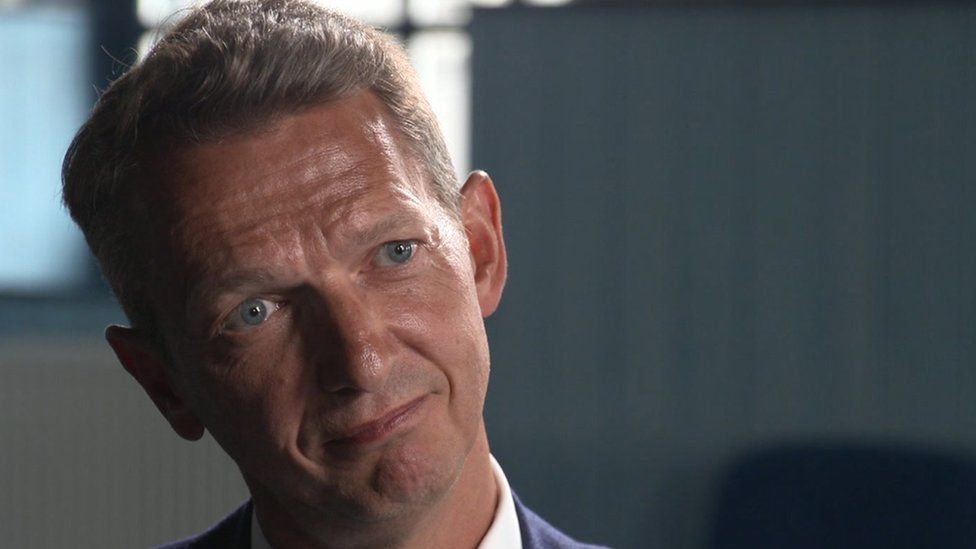Home working reduces creative thought, says Bank economist
- Published
- comments

Working from home risks stifling creativity and cuts people off from new experiences, the Bank of England's chief economist has said.
Andy Haldane said in a speech that the pandemic had "reshaped our working lives, our economic contributions and our well-being", but it was unclear whether this change was for the better.
Home working had probably reduced his capacity for creative thought, he said.
Informal chats at work were often more useful than formal meetings, he added.
"If you asked me if I am happier working from home, I genuinely would not know. I do not miss the commute," Mr Haldane said, in a speech he gave online to the Engaging Business Summit.
"But I feel acutely the loss of working relationships and external stimuli - the chance conversations, listening to very different people with very different lived experiences, the exposure to new ideas and experiences.
"These losses will grow with time. At some point, they will offset the benefits of avoiding South West Trains."
Mr Haldane said lack of face-to-face contact with colleagues and others meant "social capital" was being lost or depleted, while "creative sparks" were being "dampened".
"These are real costs and costs which would be expected to grow, silently but steadily, over time. They weigh on the other side of the ledger when it comes to assessing the case for home working.
"They cast doubt on whether it will lead to the promised land of improved productivity and greater happiness," he said.
Dark tunnel
Mr Haldane said creativity was important because it fostered innovation, which in turn fuelled economic growth.
He said an absence of distraction and noise, made easier for some people by home working, favoured "cognitive tunnelling" - a state of mind in which the brain focuses on one thing to the exclusion of all else.
But he added: "Home working means serendipity is supplanted by scheduling, face-to-face by Zoom-to-Zoom. What creativity is gained in improved tunnelling is lost in the darkness of the tunnel itself.
"I imagine some people will have used lockdown to write that creative novel they always knew was in them. I doubt many will become modern-day classics."
Despite Mr Haldane's perceptions about his own creative thought, he has made some notable contributions to the economic debate during the pandemic.
Last month, he warned that pessimistic "Chicken Licken" views about the economy were in danger of holding back the UK's post-lockdown economic recovery.
"Encouraging news about the present needs not to be drowned out by fears for the future," he said, comparing negative forecasters to the children's storybook character who feared the sky would fall.
"Collective anxiety is as contagious, and could be as damaging to our well-being, as this terrible disease."
- Published30 September 2020
- Published30 June 2020